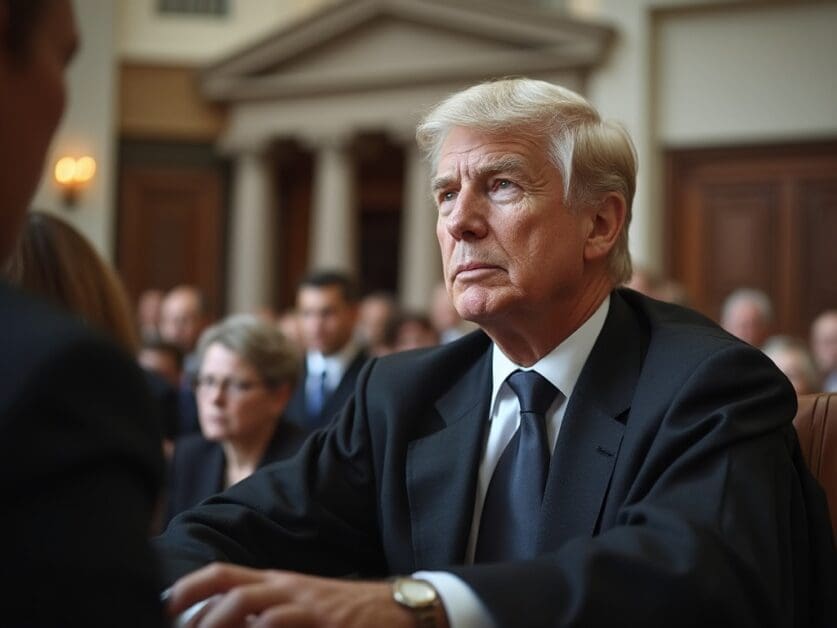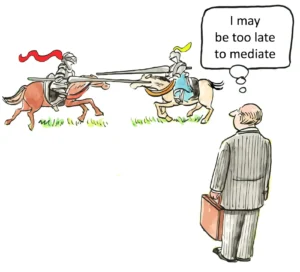Meta Case at Supreme Court: Unexpected Withdrawal Without Ruling
In a surprising turn of events, the highly anticipated Supreme Court case involving Meta, formerly known as Facebook, has come to an abrupt end with the unexpected withdrawal of the case before a ruling could be issued. This development has sent shockwaves through the legal community and tech industry, raising questions about the future of digital rights and content moderation on social media platforms.
The case, which centered on the scope of Section 230 of the Communications Decency Act and its application to social media companies, was poised to be a landmark decision that could have reshaped the landscape of online speech and platform liability. However, Meta’s decision to withdraw the case has left many legal experts and industry observers speculating about the motivations behind this move and its potential implications for future litigation in this area.
At the heart of the case was the question of whether social media platforms should be held liable for the content posted by their users, particularly in cases where algorithmic recommendations may have played a role in amplifying harmful or illegal content. The Supreme Court was expected to provide clarity on the extent to which Section 230 protects platforms from such liability, a issue that has become increasingly contentious in recent years as concerns about online misinformation and harmful content have grown.
The withdrawal of the case has left many key legal questions unanswered, creating uncertainty for both tech companies and policymakers grappling with the challenges of regulating online speech. Some experts speculate that Meta may have decided to withdraw the case due to concerns about an unfavorable ruling that could have potentially exposed the company to increased liability. Others suggest that the company may have reached a settlement or found an alternative solution to the underlying legal dispute.
One of the key issues that the Supreme Court was expected to address in this case was the role of algorithmic recommendations in content moderation. Many critics argue that social media platforms should be held responsible for the content their algorithms promote, as these recommendations can amplify harmful or misleading information. The withdrawal of the case means that this crucial question remains unresolved at the highest level of the U.S. legal system.
The implications of this unexpected development extend far beyond Meta and could impact the entire tech industry. Other social media companies and online platforms that rely on Section 230 protections may now face increased uncertainty about their legal obligations and potential liability. This could lead to changes in how these platforms approach content moderation and user-generated content, potentially resulting in more cautious and restrictive policies.
The withdrawal of the case also raises questions about the future of legislative efforts to reform Section 230. With the Supreme Court no longer poised to weigh in on the issue, there may be renewed pressure on Congress to take action and provide clearer guidelines for platform liability. Several bills aimed at modifying or repealing Section 230 have been proposed in recent years, and the lack of judicial clarity may give these efforts new momentum.
From a broader perspective, the Meta case withdrawal highlights the complex interplay between technology, law, and public policy in the digital age. As online platforms continue to play an increasingly central role in public discourse and information dissemination, the need for clear legal frameworks to govern these spaces becomes ever more pressing. The absence of a Supreme Court ruling on this matter leaves a significant gap in the legal landscape that will likely need to be addressed through other means.
The case also touches on important issues of free speech and the role of private companies in regulating online discourse. Critics of Section 230 argue that it gives tech companies too much power to censor or promote certain viewpoints, while supporters contend that it is essential for fostering open dialogue on the internet. The withdrawal of the Meta case means that these fundamental questions about the balance between free expression and content moderation remain unresolved at the highest judicial level.
Another important aspect of this development is its potential impact on international internet regulation. Many countries around the world look to U.S. legal precedents when crafting their own policies for regulating online platforms. The lack of a clear Supreme Court ruling on the scope of platform liability could influence how other nations approach these issues, potentially leading to a more fragmented global regulatory landscape for social media and other online services.
The withdrawal of the Meta case also raises questions about the role of corporate strategy in shaping legal outcomes. By choosing to withdraw the case before a ruling could be issued, Meta has effectively prevented the establishment of a potentially unfavorable legal precedent that could have had far-reaching consequences for the company and the industry as a whole. This move highlights the significant influence that large tech companies can wield in shaping the legal and regulatory environment in which they operate.
From a consumer protection standpoint, the lack of a Supreme Court ruling on platform liability leaves users in a state of uncertainty regarding their rights and the responsibilities of social media companies. Without clear guidelines on when platforms can be held liable for user-generated content, it may be more difficult for individuals to seek redress for harm caused by online speech or activities facilitated by these platforms.
The Meta case withdrawal also touches on issues of data privacy and the use of personal information in content recommendation algorithms. As concerns about data collection and usage by tech companies continue to grow, the lack of clarity on platform liability may complicate efforts to regulate these practices and protect user privacy in the context of social media and other online services.
Another important consideration is the potential impact on innovation in the tech sector. The uncertainty surrounding platform liability in the wake of the Meta case withdrawal could potentially stifle innovation, as companies may become more risk-averse in developing new features or services that involve user-generated content or algorithmic recommendations. This could have long-term implications for the competitiveness of the U.S. tech industry on the global stage.
The case also highlights the challenges of applying traditional legal concepts to rapidly evolving technologies. The internet and social media platforms have fundamentally changed the way information is created, shared, and consumed, often outpacing existing legal frameworks. The withdrawal of the Meta case underscores the need for a more agile and adaptable approach to regulating these technologies that can keep pace with their rapid evolution.
From a civil rights perspective, the lack of a Supreme Court ruling on platform liability leaves important questions unanswered about the responsibilities of tech companies in addressing online harassment, discrimination, and hate speech. Without clear guidelines on when platforms can be held accountable for such content, it may be more challenging to ensure that marginalized groups are adequately protected in online spaces.
The Meta case withdrawal also raises issues related to corporate accountability and transparency. The decision to withdraw the case before a ruling could be issued may be seen by some as an attempt to avoid public scrutiny or accountability for the company’s content moderation practices. This could potentially erode public trust in social media platforms and intensify calls for greater oversight and regulation of the tech industry.
Another important aspect to consider is the potential impact on digital literacy and media education efforts. With the legal landscape surrounding platform liability remaining unclear, there may be a greater need for initiatives to help users better understand the nature of content they encounter online and the role that algorithms play in shaping their digital experiences. This could lead to increased investment in digital literacy programs and media education initiatives.
The withdrawal of the Meta case also touches on issues of algorithmic transparency and accountability. Without a Supreme Court ruling on the matter, questions about how much information platforms should be required to disclose about their content recommendation algorithms and how these systems can be audited for potential biases or harmful effects remain unresolved. This could spur renewed efforts to develop regulatory frameworks for algorithmic transparency and accountability.
From a competition law perspective, the lack of clarity on platform liability could potentially impact the competitive landscape in the tech industry. Smaller companies and startups may find it more challenging to navigate the uncertain legal environment, potentially reinforcing the dominance of larger, established platforms that have the resources to manage legal risks more effectively.
The Meta case withdrawal also raises questions about the role of self-regulation in the tech industry. With the absence of clear judicial guidance, there may be increased pressure on social media companies to develop and adhere to industry-wide standards for content moderation and platform liability. This could lead to the emergence of new self-regulatory bodies or initiatives aimed at addressing these issues.
Another important consideration is the potential impact on online advertising practices. The uncertainty surrounding platform liability could influence how companies approach targeted advertising and the use of user data for ad personalization. This could have significant implications for the digital advertising ecosystem and the business models of many online platforms.
The withdrawal of the Meta case also touches on issues of national security and the role of social media platforms in combating disinformation and foreign interference in democratic processes. Without clear guidelines on platform liability, it may be more challenging to develop effective strategies for addressing these threats and ensuring the integrity of online information ecosystems.
From a legal ethics standpoint, the Meta case withdrawal raises questions about the responsibilities of tech companies and their legal teams in managing high-stakes litigation that could have far-reaching societal impacts. The decision to withdraw a case of this magnitude from the Supreme Court docket is not one taken lightly and likely involved complex ethical considerations balancing corporate interests with broader societal concerns.
The case also highlights the growing importance of tech policy expertise in the legal profession. As technology continues to reshape various aspects of society, there is an increasing need for lawyers and judges who possess a deep understanding of both legal principles and the technical realities of digital platforms. The complexity of the issues raised in the Meta case underscores the importance of bridging the gap between law and technology.
Another aspect to consider is the potential impact on international relations and digital diplomacy. The lack of a clear U.S. Supreme Court ruling on platform liability could influence ongoing international negotiations and efforts to develop global standards for internet governance. This could potentially lead to a more fragmented approach to regulating online platforms across different jurisdictions.
The withdrawal of the Meta case also raises questions about the future of internet architecture and the potential emergence of alternative models for online communication and content sharing. The uncertainty surrounding platform liability under the current centralized social media model could spur increased interest in decentralized or federated approaches to online platforms that distribute responsibility for content moderation across multiple actors.
From a legal research perspective, the abrupt end to the Meta case without a Supreme Court ruling leaves a significant gap in jurisprudence on digital rights and platform liability. This could potentially lead to increased academic and scholarly focus on these issues, as researchers seek to analyze the implications of the case’s withdrawal and propose alternative legal frameworks for addressing the challenges of online content moderation.
The case also touches on important issues of corporate social responsibility in the tech sector. The decision to withdraw the case raises questions about the extent to which large tech companies should consider their broader societal impact when making strategic legal decisions. This could potentially lead to increased scrutiny of tech companies’ legal strategies and their alignment with stated corporate values and social responsibility commitments.
Another important consideration is the potential impact on digital citizenship education. The complex legal and ethical issues raised by the Meta case highlight the need for comprehensive education programs that prepare individuals to navigate the digital world responsibly and critically. The lack of clear judicial guidance on platform liability may increase the importance of fostering digital citizenship skills among users of all ages.
The withdrawal of the Meta case also raises questions about the future of content moderation technologies. Without clear legal guidelines on platform liability, there may be increased investment in developing more sophisticated AI-driven content moderation tools that can better navigate the complex landscape of online speech. This could potentially lead to advancements in natural language processing and content analysis technologies.
From a legal history perspective, the Meta case withdrawal represents a significant moment in the ongoing evolution of internet law. The absence of a Supreme Court ruling on this crucial issue of platform liability will likely be studied and analyzed by legal historians for years to come, as they seek to understand the complex interplay between technology, law, and society in the digital age.
In conclusion, the unexpected withdrawal of the Meta case from the Supreme Court docket without a ruling has left the legal landscape surrounding platform liability and online speech in a state of uncertainty. This development raises numerous complex questions about the future of digital rights, content moderation, and the regulation of social media platforms. As the tech industry, policymakers, and legal experts grapple with the implications of this unexpected turn of events, it is clear that the issues at the heart of the Meta case will continue to be of critical importance in shaping the future of the internet and online communication. The coming months and years will likely see renewed efforts to address these challenges through legislative action, industry self-regulation, and potentially new legal challenges that may eventually make their way to the Supreme Court.




















